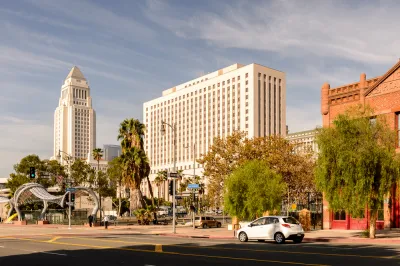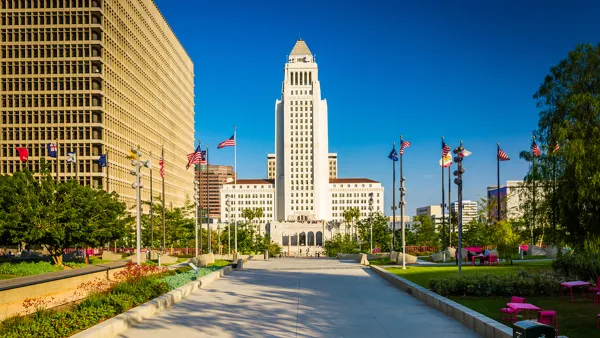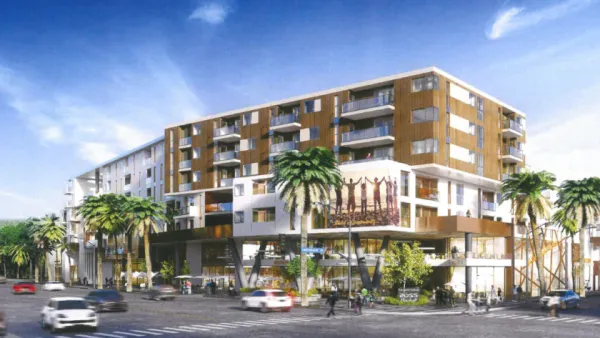Three former Los Angeles public officials share their collective perspective on how best to reform the city of Los Angeles' corrupted land use approval process.

Until land use planning in Los Angeles is based on smart public policy, not raw political power, developers will be irresistibly drawn to find ways to influence politicians, lawfully or not. Here, Rick Cole, former city manager of Santa Monica, mayor of Pasadena, and contributing TPR Editor; S. Gail Goldberg, FAICP, former planning director of San Diego and Los Angeles and former executive director of Urban Land Institute Los Angeles; and Bud Ovrum, former deputy mayor for economic development of the city of Los Angeles, former general manager of the Los Angeles Department of Building and Safety, and former CEO of the CRA/LA, share their collective perspective on how best to reform L.A. city's corrupted land use approval process
Instead of a process that demands case-by-case exceptions to outdated zoning codes or superficial knee-jerk reforms—the trio advocate for a comprehensive package of policies that will protect existing residents from slipshod spot zoning and displacement while making room for the next generation to pursue their dreams for a better life.
"There is no quick and easy fix. Superficial reforms to curb corruption might temporarily quell the outrage -- until the next set of scandals and indictments. But unless we replace our outdated zoning, we still won’t have affordable housing and workers will still have to endure long commutes to their jobs. Businesses will still struggle to retain skilled workers who can’t afford to live here. New residential and commercial building will still be held hostage to convoluted and capricious processes that drive up costs and make us less competitive with other regions. Neighbors will still have to fight City Hall to stop ill-conceived projects and developers will still find ways to pay to play. To fail to plan is to plan to fail.
The real fix is to do real planning. To spend the time and money to plan for adequate new housing and to put new commercial development where it can be served by our expensive investments in public transit. To involve our diverse communities in a collaborative effort to plan for a more equitable, prosperous, livable and environmentally sustainable Los Angeles. To ensure that instead of allowing individual projects that make little sense, we plan comprehensively to have adequate schools, parks and transit for new growth. To protect existing residents not from change, but from slipshod spot zoning and displacement while making room for the next generation to pursue their dreams for a better life."
Read the full piece on The Planning Report.

Analysis: Cybertruck Fatality Rate Far Exceeds That of Ford Pinto
The Tesla Cybertruck was recalled seven times last year.

National Parks Layoffs Will Cause Communities to Lose Billions
Thousands of essential park workers were laid off this week, just before the busy spring break season.

Retro-silient?: America’s First “Eco-burb,” The Woodlands Turns 50
A master-planned community north of Houston offers lessons on green infrastructure and resilient design, but falls short of its founder’s lofty affordability and walkability goals.

Test News Post 1
This is a summary

Analysis: Cybertruck Fatality Rate Far Exceeds That of Ford Pinto
The Tesla Cybertruck was recalled seven times last year.

Test News Headline 46
Test for the image on the front page.
Urban Design for Planners 1: Software Tools
This six-course series explores essential urban design concepts using open source software and equips planners with the tools they need to participate fully in the urban design process.
Planning for Universal Design
Learn the tools for implementing Universal Design in planning regulations.
EMC Planning Group, Inc.
Planetizen
Planetizen
Mpact (formerly Rail~Volution)
Great Falls Development Authority, Inc.
HUDs Office of Policy Development and Research
NYU Wagner Graduate School of Public Service




























